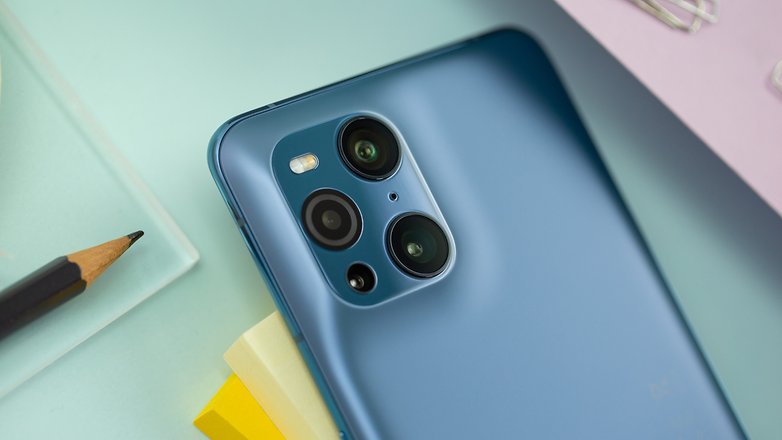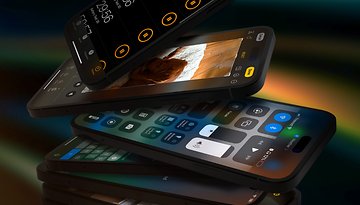Opinion: Beta culture - Why do we increasingly buy unfinished products?


Each new feature or software update is eagerly awaited and installed as soon as possible, as things get even better when they are upgraded, right? But what if the novelty was promised months before, even during the announcement of the device? Well, this is an increasingly common trend that is not only seen in the realm of smartphones but gadgets in general.
Work in progress
Examples abound in this matter, where one of the most recent incidences would be iOS 15.1 which delivered two features - video recording in the ProRES format and SharePlay, which were announced more than a month earlier during the unveiling of iPhone 13 and iOS 15, respectively, but which were not available when the iPhone 13 Pro hit the shelves.
This case is different, however, from when a new feature was not even mentioned in the product disclosure of a particular device, such as in the Galaxy S21 Ultra which should receive the option of recording photos in RAW format. That particular feature that was not even promised by the manufacturer in the first place.
Another example that we can look to in 2021 was the LOG format recording in the Oppo Find X3 Pro, which was released in March without the feature announced but ended up arriving later. The same happened with the LG V30. In the case of these two models, both Oppo and LG made available the necessary files for the feature months after the arrival of the devices in stores.

"Coming soon"
When I asked NextPit editors about other examples of promised features that weren't available at launch, some still cannot be used even months or years after the product's debut:
- Fitness wristbands whose features depend on the subscription or region;
- Tesla's fully autonomous steering (Autopilot SAE level 5);
- VRR (variable refresh rate) and ALLM (auto low latency mode) on some Sony "Ready for PlayStation 5" TVs.
Growing trend
The situation has reached such a critical point that it even has a name, the Banana Principle, which references the tropical fruit being plucked before it is even ripe. The term describes situations in which features (hardware included) are tested with the product already on sale, as in the case of Tesla's Autopilot remains under development.
This is often used as an excuse not to invest the necessary time required in the development and testing phases. And in some cases, problems that are discovered later may reveal bugs and incompatibilities that cannot be solved with a simple firmware update, something that happened this year with (expensive) receivers for home theatres incompatible with part of the HDMI 2.1 specification.
Apparently, this kind of situation should not become rarer. On the contrary, factors such as regular cycles of product launches - iPhones in September, the Galaxy S in the first half of the year, and the Galaxy Fold/Flip in August, for example, place pressure on product development teams.
Meanwhile, at the other end of the spectrum, market pressures, and price drops that happen shortly after launch, mean that companies try to maximize sales in each product's most lucrative period, which is usually the pre-sale period.
This may explain why Apple, with its loyal audience, has announced a not-yet-ready-to-use feature, the ProRES codec - which accompanied the iPhone 13 Pro announcement despite not having any expected release date. The brand's proprietary video format had no chance of being implemented earlier by a competitor, and could well have been highlighted later with the release of iOS 15.1, as the company did with TRA when it released iOS 14.5.
The same idea helps us understand why Sony announced a feature for its Android Smart TVs that wasn't made available until 19 months after the release date. The strategy served to attract buyers of PlayStation 5 and Xbox Series X|S consoles, which could use the features promised in March 2020 only in October 2021 (almost a year after the debut of the consoles).
Beta signup
The solution to discourage companies from adopting such a strategy is to get as many people as possible to stop buying products when they are up for pre-sale and to only purchase gadgets and devices based on what is actually offered and not what is promised.
At this point, product reviews like those conducted by NextPit help clarify what actually works and what is just marketing drivel. Promised features may very well be canceled, something that has happened with updates of Android versions, for example.
In cases where the company simply does not deliver what it promised, our recommendation is to seek consumer protection agencies to try to recover the money invested. Following that, one should be wiser and learn this lesson and to not return and be a guinea pig of such companies. This is something that people who follow news of virtual crowdfunding Kickstarter types should already be more than aware of...
















People like to show off. The same happened with Tesla Cybertruck and Tesla had to eventually stop accepting pre-orders!
IMHO, many of these products don't have the wide market appeal to go through a full product development. They appeal to niche enthusiasts who will accept and tolerate the rough edges for the specialized function it supports for their targeted interests.